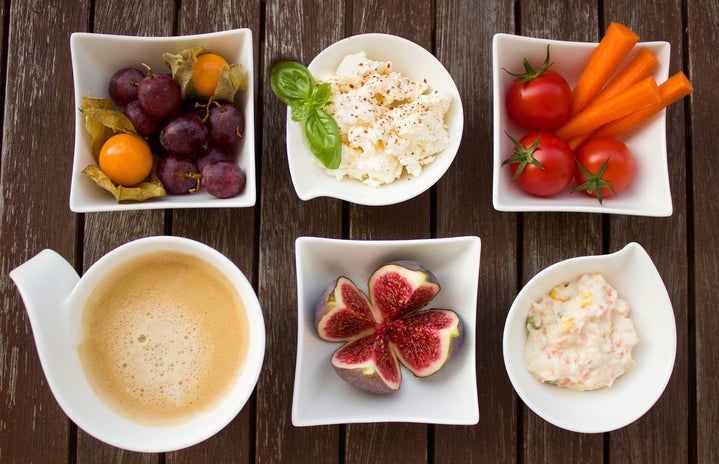Content warning: This article will discuss heavy and possibly triggering topics such as eating disorders. Please read at your own discretion.
When I was about 14-years-old, I was diagnosed with an eating disorder. I vividly remember hearing a medical professional refer to my diagnosis for the first time, as I sat perched atop an examination table, fingertips nervously fiddling with the waxy paper covering.
The doctor mentioned it in passing, almost casually, as if it was something I had heard before. I blinked. Once. Twice. I assured him that I wasn’t anorexic, and he looked at me for a moment with an unreadable expression before asking what I thought that word meant.
I told him that it meant not eating and being dangerously underweight. My doctor informed me that I wasn’t eating and was dangerously underweight.
Hearing it from my doctor, soon followed by a therapist and nutritionist, made it real. Hearing my friends and family express their concerns made it real. It made me realize that I was sick, and I needed help.
Four years later, thanks to treatment and unwavering support from those around me, I can happily say that I’m doing much, much better. I love myself, and I know my worth is not dependent on my weight. However, dealing with the disorder left me with a tumultuous relationship with food that I still struggle with almost every day.
An unhealthy relationship with food is not unique to those with histories of disordered eating. Almost every girl I know has told me that she sometimes struggles to maintain a healthy relationship with food amidst food-related guilt and pressures to diet.
We’re taught that “healthy” eating looks a certain way, and we’re taught to feel guilty when we stray from that ideal. This mindset is imparted upon women and men alike by companies that benefit from our insecurities, and it is often reaffirmed by social media.
Social media encourages us to constantly compare our bodies and diets to Instagram models’. Turns out, a lot of these influencers are insecure too, and they edit their photos to fit an unattainable standard of beauty.
Struggling with an eating disorder and the remnants of an unhealthy mindset has taught me the importance of eating healthy. Not what’s healthy for others, but what’s healthy for me.
I’ve learned that what’s healthy for me is not always eating veggies. What’s healthy for me is balance. Sometimes, it’s salads. Sometimes, it’s eating chocolate ice cream straight from the tub, while watching New Girl at 2 a.m.
Overall, although I’m still working on my relationship with food, I know that healthy eating looks different for everyone at different times, and that’s okay.
National Eating Disorder Association Helpline: (800) 931-2237


